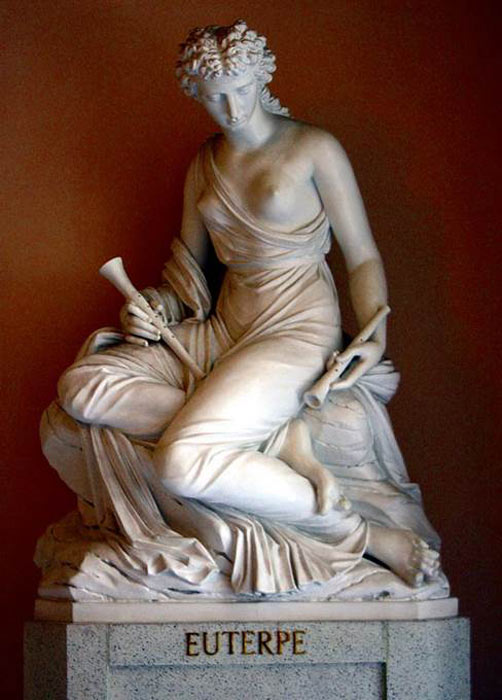
Why is Social Media Afraid of the Naked Truth in Art?
Many countries, including Austria, Germany, and France, have laws prohibiting Holocaust denial. This means every year several thousands of posts are blocked by algorithms and employees of social media platforms. While it’s easy for Zuckerberg at Facebook and Dorsey at Twitter to justify this kind of censorship, what is not so easily rationalized is the blocking of ancient art for being “lewd.”
Vienna’s Tourist Board is the latest arts institution to open an account on OnlyFans, the London based subscription service that allows content creators to earn income from users who subscribe to their channel. Rather than channeling funds through the ever-expanding Facebook bank, OnlyFans unites creators with their fans, who pay either a monthly subscription or pay-per-view. It was not because Vienna's museums particularly wanted to open their OnlyFans account, but they had no option after TikTok, Instagram and Facebook constantly blocked their posts showing photographs of nude statues.

Statue of Euterpe at the Albertina Museum, Vienna. (Pilar Torres/CC BY NC-SA 2.0)
They Talk Some Rubbish for Being Info-Cops
Images of the human body have featured in art since the Venus of Willendorf was made around 25,000 years ago. However, a team of people who get offended a lot have now deemed the works of Egon Schiele and Richard Gerstl as being “too lewd” for the public to deal with. Only in April last year the National Coalition Against Censorship (NCAC) launched the #WeTheNipple campaign calling for changes in Facebook (and Instagram’s) nudity policies. They were initially encouraged by Facebook’s policy team who committed to a raft of changes.
- Censored! Facebook Blocks Images of 2,000-Year-Old Roman Statues for Nudity
- Viva La Vulva! When Did Female Genitalia Become Obscene?

The image of the Venus of Willendorf, housed in the Naturhistorisches Museum in Vienna, has previously been censored by Facebook. (Richard Mortel/CC BY 2.0)
Facebook said they would convene “a group of stakeholders including artists, art educators, museum curators, activists, as well as Facebook employees, to examine how to better serve artists, including considering a new approach to nudity guidelines.” It was planned that participants would discuss Facebook’s nudity policies, and that they would “explore ideas for a path forward.” As it turns out, all that was just a crock of… rubbish.

Museum visitor with ‘Young Woman in a Shirt’ (1918) by Amedeo Modigliani at the Albertina Museum, Vienna. (eSeL REZEPTION)
A Robotic World in Which the Human Body is Shamed
TikTok, Instagram and Facebook all claim to ban photographic and other artistic representations of the human body. This horrid policy stops public museums and art galleries from promoting any exhibitions that featuring nude figures of any form. However, what is perhaps the worst aspect of all this, according to Daily Mail, is that the ban disproportionately affects “the already-marginalized bodies, including queer and gender-non-conforming artists.” So, in their attempt to police the internet, social media companies are hitting minority groups and museums for publishing so-called 'lewd' content.
- Ancient Origins Censored: Skeletons, Mummies and Naked Neanderthals Deemed Too Shocking to Publish
- Iconic 30000-Year-Old Ancient Female Dubbed “Dangerous Pornography” By Facebook
Helena Hartlauer, a spokesperson for the Vienna Tourist Board, told NBC News that they were forced to launch a page on OnlyFans. They needed to promote collections of nude statues and paintings of the Leopold Museum, Kunsthistorisches Museum Vienna, and Naturhistorisches Museum Vienna and Albertina. These artworks were created by greats including Egon Schiele, Richard Gerstl, Koloman Moser and Amedeo Modigliani. However, the museum’s posts were repeatedly “blacklisted” on TikTok, Instagram and Facebook. Hartlauer said the cities’ arts institutions “are among the casualties of this new wave of prudishness.”
AI Doesn’t Like What We Want to See
In computer science and math an algorithm is a sequence of well-defined instructions that solve specific problems, most often determining what is okay for you to see and what is not. Speaking about social media algorithms, Hartlauer said they “definitely should not determine our cultural legacy.” Furthermore, she accused TikTok, Instagram and Facebook of “changing the face of art forever.”
Hartlauer told Daily Mail that Vienna has always been a very open-minded city and that the citizens have never been “afraid of the naked truth.” Furthermore, she said ultimately the Vienna Tourist Board hopes their new OnlyFans page will help “to spark the conversation about censorship” on social media.
Top Image: Danaë from the workshop of Titian at the Kunsthistorisches Museum in Vienna, Austria. (Deriv.) Source: Public Domain
By Ashley Cowie















